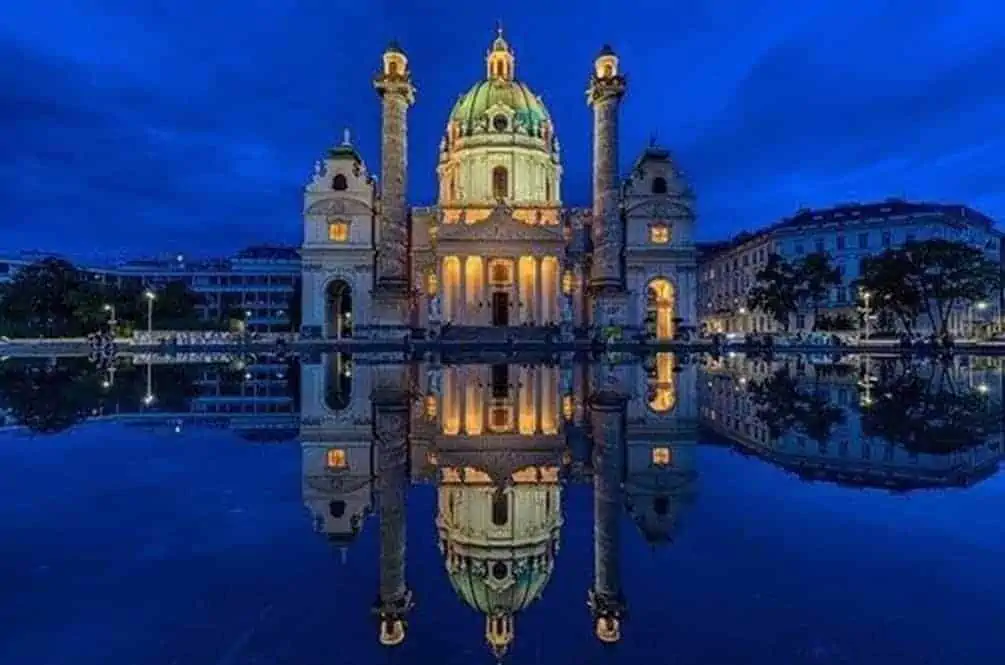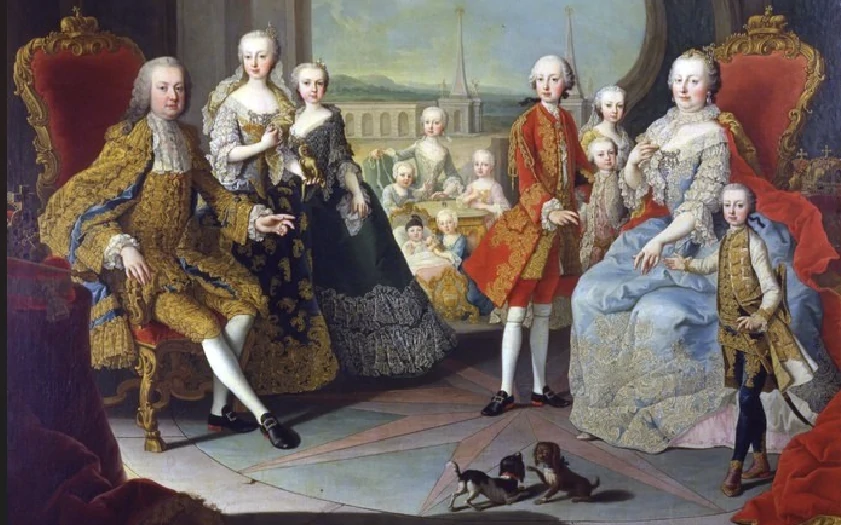What was the reason for the construction of the Charles Church and after which Charles is it named? Who was the architect and what other buildings can be traced back to him? What is special about the architecture of the Karlskirche, both inside and out? Baroque – Baroque – Karlskirche. A true masterpiece of Baroque architecture, built by the architect Johann Bernhard Fischer von Erlach . He was also responsible for the construction of Schönbrunn Palace and the Court Library, now the National Library . The occasion was the last plague epidemic of 1713. The vow of Charles VI (father of Maria Theresa) was then implemented and the church was put out to tender for construction. Johann Bernhard Fischer von Erlach was awarded the contract ahead of his great rival Johann Lukas von Hildebrandt. The church is intended as a link between Rome and Byzantium , reminiscent of the Hagia Sophia in Istanbul and Trajan’s Columns in Rome. The large dome is characteristic of the church and imitates Roman architecture. The construction costs amounted to a considerable 304,045 guilders and the crown countries, such as Spain, the Duchy of Milan and the Netherlands, also contributed to it. The foundation stone was laid in 1716 on the right bank of the Vienna River, which at that time was still barely regulated. Hard emperor stone was used for the main portal and also for the stairs. The two prominent columns imitate the columns of Trajan in Rome. On the reliefs you can see the life of the plague saint Charles Borromeo. These columns are also often interpreted as the Pillars of Hercules in reference to the patron Charles VI, who had lost the rule in Spain in the course of the War of the Spanish Succession . The Karlskirche, named after the emperor’s patron saint, Charles Borromeo, a miraculous plague saint from Milan, while Karlsplatz is named after Emperor Charles VI. One of the few churches in Vienna, not to say the only one, that charges admission. The entrance fee is worth it, because it entitles you to take the interior elevator to the very top to see the baroque dome frescoes by Johannes Michael Rottmayr up close. A panoramic lift will take you up to 32m in no time. The dome actually has the shape of an ellipse. From the side, at the entrance it looks bigger than from the front. The Karlskirche church on the square of the same name is a listed building. Nearby you will find the Vienna University of Technology (TU), the Naschmarkt, the Secession, the Albertina modern and the Musikverein as well as the Wien Museum (currently closed for renovation) Not forgetting the two pavilions created by Otto Wagner, THE Viennese city architect around 1900. One pavilion houses a café, the other an exhibition on the life and work of Otto Wagner. Karlsplatz is home to Resselpark with numerous statues, e.g. of Josef Ressel, who gave the park its name and invented the ship’s propeller. A statue was also dedicated to Josef Madersperger in thanks for the invention of the sewing machine. Time Travel Tip: For those with a head for heights: be sure to take the panoramic lift up the 32m to the top to admire the dome frescoes and the view at close quarters. It is especially nice at Christmas time, when the Christmas market of artisans takes place at Karlsplatz. The church concerts in the Karlskirche are highly recommended! More info: Karlskirche Vienna | Vienna
Image source:
https://pixabay.com/de/photos/karlskirche-wien-%C3%B6sterreich-4387053/



